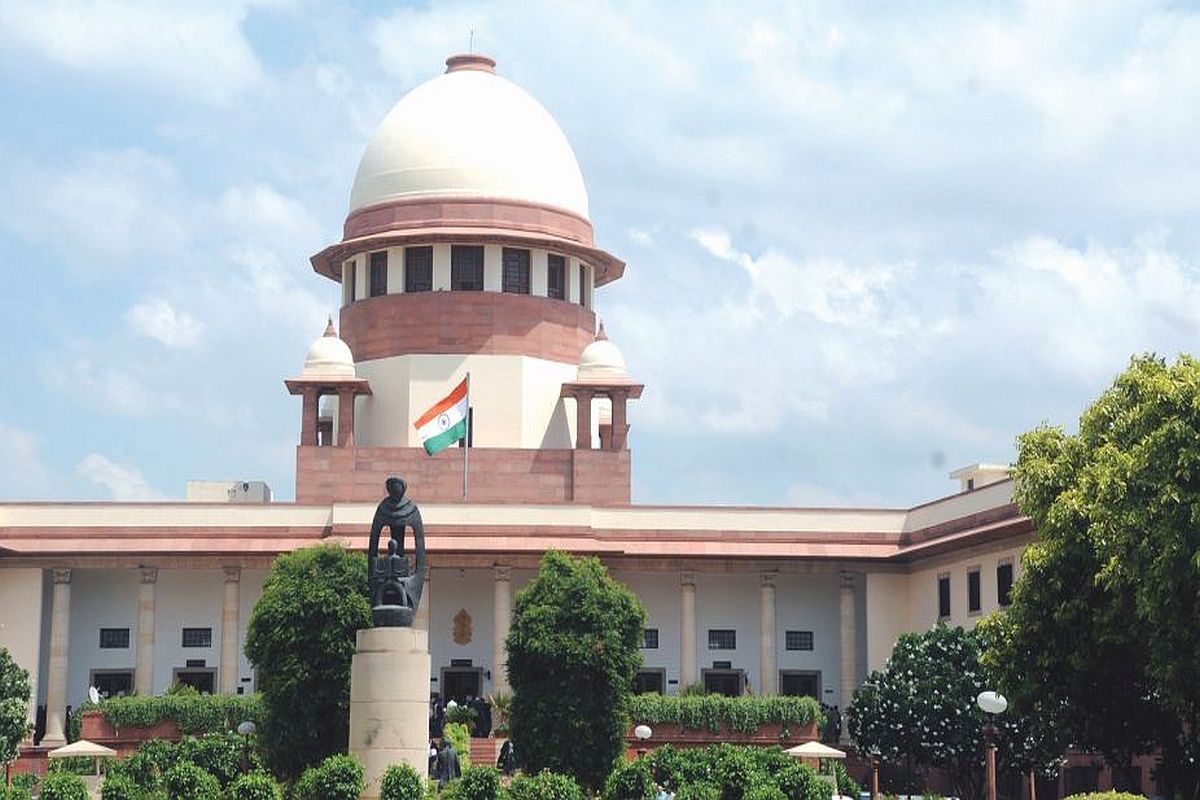SC rejects all petitions seeking 100 per cent verification of EVM votes with VVPAT slips
The top court also rejected the prayers of petitioners to return to ballot paper voting.
The top court today said that it will examine the constitutional validity of the amendment and issued notice to the Centre. The bench was headed by Chief Justice Ranjan Gogoi.

Justice Vijaya K Tahilramani , the Chief Justice of Madras High Court have expressed her desire to resign from her post. (File Photo: IANS)
The Supreme Court on Friday sought Centre’s response on a public interest litigation (PIL) urging it to declare unconstitutional the Unlawful Activities (Prevention) Amendment (UAPA) Act, 2019, notified by the Centre to designate an individual as a terrorist.
The top court today said that it will examine the constitutional validity of the amendment and issued notice to the Centre. The bench was headed by Chief Justice Ranjan Gogoi.
The PIL, filed by a resident of Delhi, Sajal Awasthi, said that the Act is in violation of the fundamental rights guaranteed under Article 14 (right to equality), 19 (right to free speech and expression) and 21 (right to life) in the Constitution.
Advertisement
The petition contends that the new section 35 of the UAPA Act allows the Centre to categorise any individual as a terrorist and add the person’s identity in Schedule 4 of the Act. Therefore, this leads to the accumulation of huge powers which is unfettered and unbound and antithesis to Article 14 of the Constitution.
This come two days after India declared Lashkar-e-Taiba chief Hafiz Saeed, Jaish-e-Mohammed chief Masood Azhar, LeT’s supreme commander of operations in Kashmir Zaki-ur-Rehman Lakhvi and fugitive underworld don Dawood Ibrahim as terrorists under the Unlawful Activities Prevention (Amendment) Act.
The move comes days after the anti-terror Unlawful Activities Prevention (Amendment) Act (UAPA) Bill, 2019 seeking to designate individuals suspected to have terror links as “terrorists”, was passed in the Rajya Sabha on August 2.
The anti-terror bill was passed with 147 votes in its favour and 42 against it in the Upper House of the Parliament.
The contentious bill was passed in the Lok Sabha with 284 votes in its favour and eight against it after the opposition walked out in protest on July 24.
Union Home Minister Amit Shah defending the bill has said that “terrorism has no religion and terrorists are against humanity”.
Amit Shah further said that counter-terrorism can only be carried out effectively if individuals linked to these organisations are punished.
The opposition had objected to the amendment bill saying the law could be misused to target individuals.
Congress leader P Chidambaram said that the party was not opposing the Unlawful Activities (Prevention) Act Bill but the idea of Centre being “empowered to add or remove an individual’s name as a terrorist”.
“If the Centre wants to target someone, they will get them somehow with the help of some law. Opposition leaders, minorities, rights activists and others, if they disagree with the homogenous idea of India that this government is trying to thrust upon us, the opposition runs the risk of being labelled as anti-national,” TMC leader Mahua Moitra said about the bill .
Under the newly amended UAPA bill, the government can seize the property and ban any travel of the person named as “terrorist”. Union Home Secretary or a review committee can be approached by the individuals if named terrorists.
Advertisement